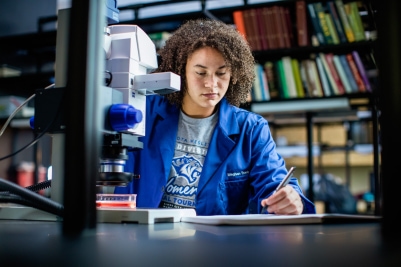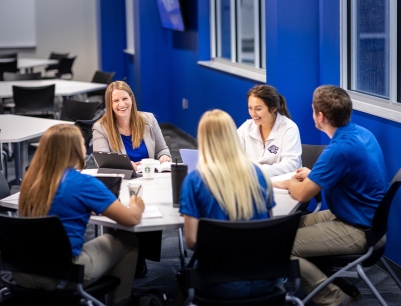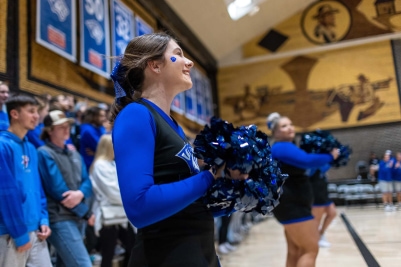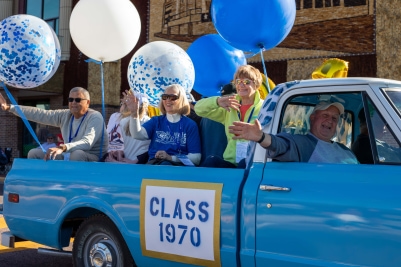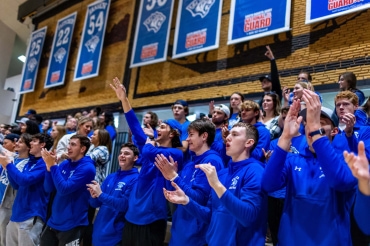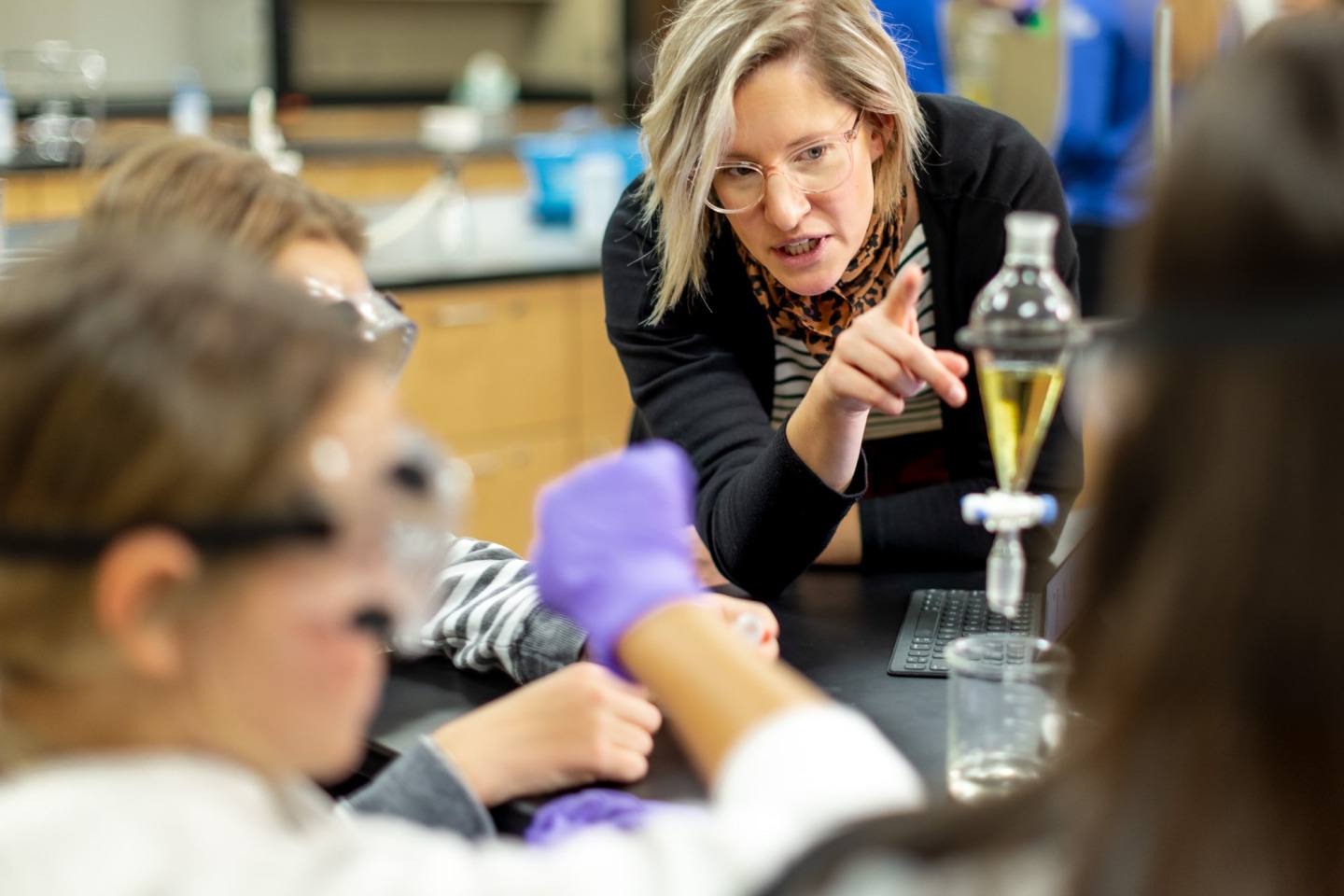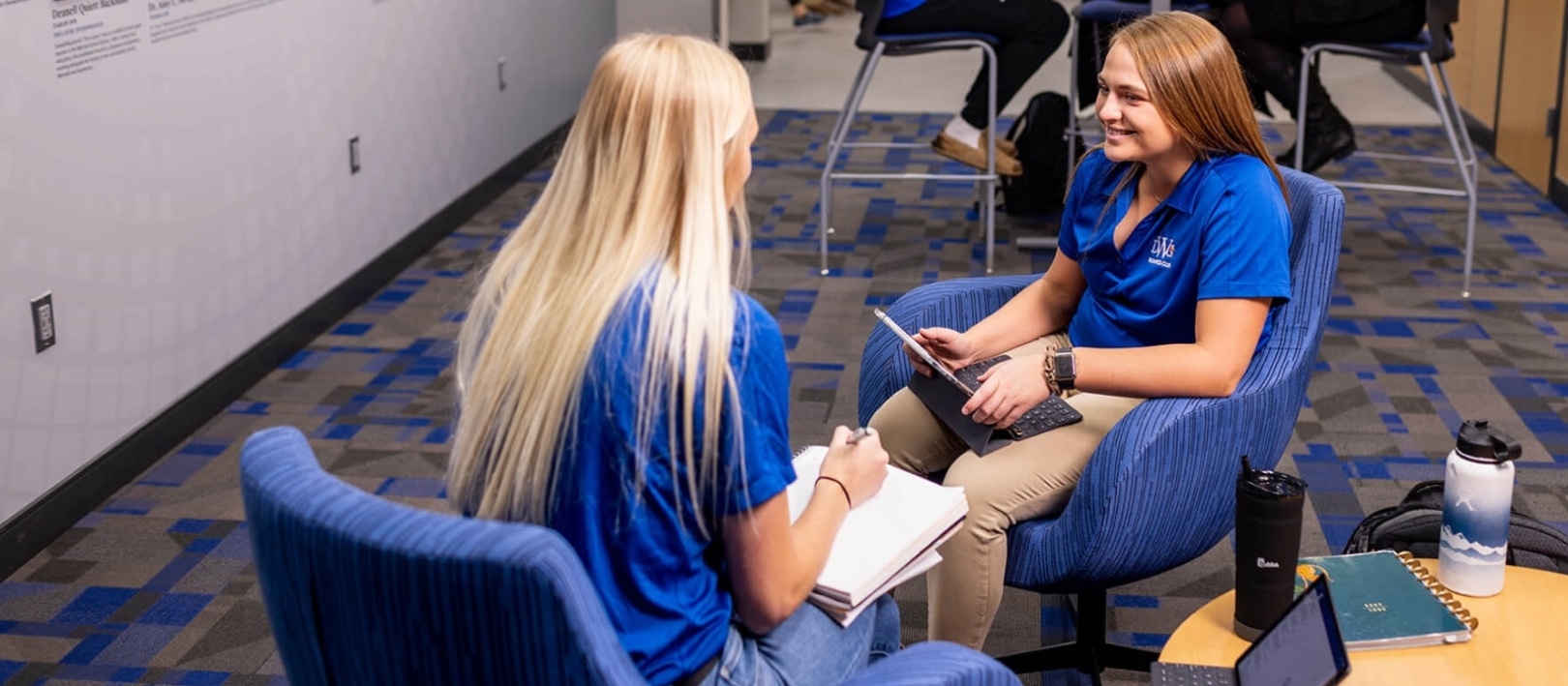Biochemistry
Explore the World's Structures
What jobs can you do with a
biochemistry degree?
Studying the foundation of living things, biochemistry jump-starts many careers in areas such as:
Medicine, Dentistry and Veterinary Science
Aquaculture and Agriculture
Research and Analysis
Explore which companies are currently looking for biochemists in South Dakota.
What’s the Difference at DWU?
- You’ll have access to private rural land to conduct research, restoration and preservation of native prairie habitats.
- Travel and present your research findings with DWU faculty and community members.
- Work with your professor as a lab assistant.
- Prepare for a career in medicine with pre-health opportunities.
Biochemistry Opportunities
Research
Dakota Wesleyan’s professors are continuously conducting research in our state-of-the-art facilities.
How can you participate?
• Apply to work in the lab, and have access to science equipment as a volunteer or as a paid research assistant.
• Learn more about biochemistry and medicine. Shadow with the Sanford Medical Center.
Community Outreach
• As a biochemistry major, your involvement with the Chemistry Health And Other Sciences (CHAOS) club will lead to service learning projects on campus and in the community.
Teaching Lab Assistantship
• Work hand-in-hand with your professors in the lab as a teacher's assistant.
• Become comfortable and confident with preparation and disposal of chemicals.
• Offer a helping hand and lead your peers through challenging lessons.
• Enrich your learning experience with additional interactive learning opportunities.
Biochemistry Courses
Courses will include hands-on learning experiences and research opportunities.
BIO 120 Principles of Biology I
Prerequisite or corequisite: BIO 120L
BIO 120L Principles of Biology I Lab
Corequisite: BIO 120
BIO 122 Principles of Biology II
Prerequisite: BIO 120/120L
Corequisite: BIO122L
BIO 122L Principles of Biology II Lab
Prerequisite: BIO 120/120L
Prerequisite or corequisite: BIO 122
BIO 315 Genetics
Prerequisites: BIO 122/122L
Prerequisite or corequisite BIO 315
BIO 315L Genetics Lab
Prerequisites: BIO 120 and BIO 122, and prerequisite or corequisite BIO 315.
BIO 403 Research in Biochemistry
Prerequisite: Consent of instructor.
CHM 231 Organic Chemistry I
Prerequisite: CHM 164/166
Corequisite: CHM 231L
CHM 231L Organic Chemistry I Lab
Prerequisite or corequisite: CHM 231
CHM 310 Inorganic Chemistry
Prerequisite: CHM 164
CHM 323L Analytical Chemistry Lab
Prerequisite or corequisite: CHM 323
CHM 332 Organic Chemistry II
Prerequisite: CHM 231/231L
Corequisite: CHM 332L
CHM 332L Organic Chemistry II Lab
Prerequisite or corequisite: CHM 332
CHM 341 Biochemistry I
Prerequisite: CHM 174/174L or CHM 231/231L
Corequisite: CHM 341L
CHM 341L Biochemistry I Lab
Prerequisite or corequisite: CHM 341
CHM 342 Biochemistry II
Prerequisite: CHM 341/341L
Corequisite: CHM 342L
CHM 342L Biochemistry II Lab
Prerequisite or corequisite: CHM 342
CHM 360 Physical Chemistry
Prerequisites: CHM 164 and MTH 210
CHM 403 Research in Chemistry
Prerequisite: Consent of instructor.
MTH 210 Calculus I
Prerequisite: MTH 135 or math placement.
PHS 260 University Physics I
Prerequisite: MTH 210
Corequisite: PHS 260L
PHS 260L University Physics I Lab
Prerequisite or corequisite: PHS 260
PHS 270 University Physics II
Prerequisite or corequisite: PHS 260/206L
Corequisite: PHS270L
PHS 270L University Physics II Lab
Prerequisite or corequisite: PHS 270
Get to Know Your Professors
“Don’t be afraid to try new things and step out of the instruction booklet. We will help guide your learning experience and ensure you take your future into your own hands.”
- Dr. Bethany Melroe and Dr. Paula Mazzer
Bethany Melroe Lehrman, Ph.D.
Paula Mazzer, Ph.D.
The Experience
You will have many career paths with a degree in biochemistry. Strength your future with a concentration in Forensic Science.
Concentration in Forensic Science
A concentration in forensic science is designed to prepare you for entry-level forensic analyses, laboratory work or advanced degree work in areas such as chemistry, biochemistry, forensics, molecular or cell biology, or related technology fields. You will be encouraged to seek internship opportunities to accompany the coursework.
Take classes like:
• Introduction to Criminal Justice
• Criminal Law
• Criminal Investigation
• Business and Technical Writing
• Scholarly Research and Writing
• Statistical Methods
Related Majors & Minors
Chemistry
Love being in the lab? Develop your interest in the physical sciences with a chemistry minor at DWU.
Criminal Justice
Discover ways to use your talents for law, law enforcement, juvenile support, corrections, court reporting or many other ways that are a part of the United States legal system.
Pre-Medicine and Related Health Professions
Do you have a passion for healing? Our faculty are committed to your success in the health arts.
Wildlife Management
Turn your love for the outdoors into a fulfilling career!


